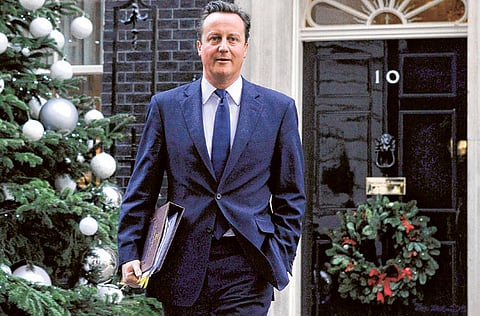Eurozone deal is a welcome success
UK's isolation will not stop the others from going ahead with plans to save the euro

It is good news that 26 of 27 members of the European Union (EU) have succeeded in agreeing to the principles for institutional change in the EU by which the members of the Eurozone will be able to manage their currency better. The European Central Bank described the treaty as "the basis for a good fiscal compact and more discipline in economic policy in the euro area members".
This important financial and political success was overshadowed by Britain's refusal to join the process, leaving it isolated in the 27-nation bloc. The other members will press on with their plans for closer economic and fiscal integration, having agreed this weekend to the principles by which they will build the necessary political structure in which to manage their varied economies and fiscal policies.
British Prime Minister David Cameron returned to London claiming to have vetoed the euro plan, but in reality it will go ahead at an intergovernmental level, being arranged between the 26-member states governments outside the European Union's existing institutional structures. This dramatic shift in European politics has left Britain dangerously out of the loop in the decision making process as Europe copes with the continuing economic crisis.
By March, the new intergovernmental treaty is expected to enshrine new fiscal compact between the 26 nations. German Chancellor Angela Merkel welcomes the treaty's insistence on closer fiscal integration and tighter budget discipline.
The process has required Germany to take a strong lead in Europe, as Merkel has managed to both convince the other members to sign up, as well as getting backing from her own party which was increasingly disenchanted with bailing out profligate governments which showed little sign of remorse.



